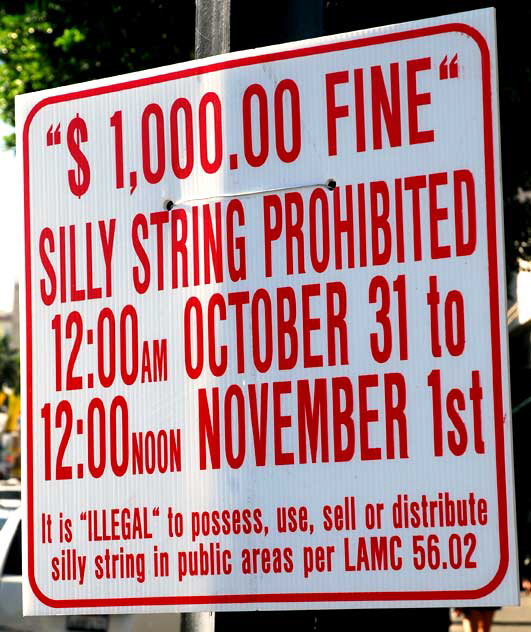Some big, even shocking events occurred in "Tomorrowland," the
Mad Men season 4 finale, but on the whole, it was a low-key affair. The first season had Don's Carousel pitch. The second had Peggy tell Pete about the kid, Betty discover she was pregnant and Don outplay Duck. Season three had Don et al steal away the agency.
This time, the surprises came, but not the expected resolutions. It looks like the agency will continue on as it has, barely making it, but staying alive. It looks like Betty will remain with Henry, though hardly happy. It looks like Don can keep hiding his identity. We'll be going into the fifth season with a lot of the same questions--including "Who is Don Draper?"
The show starts with Faye saying goodbye to Don, who's still in bed. She seems to be the new Anna. She knows all about him, and he can act normally around her. She tries to reassure him, it's time to be a person like everyone else.
At work, Joan is promoted. No money, just more responsibility. The men in charge recognize how competent she is--perhaps if she were a man she'd be running the place. (Actually, she is running the place.)
Don appears before the bigwigs at the American Cancer Society for his pitch and wows them. They're not used to such high-level appeals. We're used to big pitches from Don, and here we can see how much he lies during them. Sleeping with Faye, kicking ass in pitches--Don Draper, after flailing about, seems to have his mojo back.
At the office, they try to use Ken's connection with his new dad to get to Dow. (Ray Wise is the actor--he's too good not to use.) But Ken is no Pete--he won't trade in on his personal life. Doesn't he want to get ahead?
At the old Draper home, Carla lets creepy kid Glenn say goodbye to Sally. The only reason they're moving is to get away from Glenn. When Betty finds out, she fires Carla! Just when we thought we couldn't hate her more. Betty's too childish to admit Glenn gets to her. Carla, the most sympathetic character on the show finally gives her a little lip.
Betty calls Don and tells him Carla won't accompany him on and the kids on their upcoming trip to California.
Peggy's lesbian friends brings in her own friend, cute "Carolyn Jones" (whom Harry fawns over--touching, really. BTW, what a crappy season for Harry.) Carolyn's a model and lets drop that a panty hose company needs a new ad campaign, quick. Opportunity.
Don's at a loss and hires Megan, his secretary, to be a nanny on the California trip. She's shown she's good with kids in the past and certainly loves Don. It's a win-win.
In California, the kids can't wait to swim in the pool. Back at the office, during holiday, Peggy and Ken think they can pick up the panty hose account--the first new account SCDP's had in a while.
Megan does a great job with the kids, teaching them French songs to sing Gene to sleep. Don is impressed, and Megan wants to impress him.
Next day, Don and the kids visit Anna's old place. College gal Stephanie is there. Don must be feeling good, because he even admits to his kids he's known elsewhere as Dick. No lies. Is he opening up, like Fare suggests? Stephanie gives Don Mrs. Draper's old engagement ring (from the real Don Draper).
More swimming at the pool. (There were rumors swirling that Matt Weiner would kill off a character. I wonder if he started them to give the poll scenes more excitement.) Don sits and things in his room, then goes back to swim with the kids. He's loosening up even more.
At night, Megan leaves for a night on the town with an old girlfriend. Megan's loking good. (So is the girlfriend.) Don seems fascinated. Hey, why not, he's got his mojo back.
Henry is mad Betty fired Carla and didn't even tell him. They have words. (It's not easy to find good help). Betty is petulant, and Henry isn't putting up with it. She says she wants a fresh start, and he says there is no fresh start. That's the whole theme of the show--we want to start anew, but we can't escape our past so easily.
In California, the kids are asleep. Don goes to Megan. Natch. And, well, he can't help himself. She sure doesn't mind. (Has Don got his mojo back or what?) While Betty lies down on her mattress, by herself, Don and Megan enjoy a little post-pillow talk. She says she knows him, which she doesn't. It's hard to say who's falling for whom faster.
The hosiery pitch seems to go well. Peggy thinks fast on her feet, and she knows they're desperate. Will she save the agency? (Abe Beame is name-checked. He ran for Mayor in 1965, but didn't win until the 70s.)
Don watches Megan watch the kids at the coffee shop. Sally spills a milkshake. With walking-on-eggs-Betty, this would be a disaster. Megan laughs it off and moves things along. Wow.
Don and Megan sleep together again. Don is up thinking. He takes out the Draper engagement ring and proposes! No, Don, you hardly know her and vice versa. She's just a young, pretty secretary. She might be okay, but Faye is the woman for you! Don't let her turn your head! In the past you were sensible, stayed away from secretaries.
Megan's shocked. What to say? She's felt something for him from the start. And she'll be hard-pressed to do better. Yes! This is awful. And a sign of how Weiner sets you up expecting one thing and delivers another.
Back from vacation, Don invites in Lane, Joan, Roger and Pete and breaks the big news. Roger is nonplussed. Lane recovers and congratulates Don.
Don had earlier called Roger a jerk for doing the same thing with Jane. (Well, he did dump his wife at the same time). Joan is a bit more cynical. Here's the one man in the office as competent as she is, and he's acting so Roger-like.
Ken and Peggy come in with their good news--they got the account. They're completely sandbagged by Don's bigger news. Peggy, who's got the closest relationship of all with Don, closes the door and asks him what's going on. He says how much Megan reminds him or Peggy, and how much Megan admires Peggy, but Peggy feels a bit spurned. What the hell?
Peggy comes into Joan's office. Five years ago Joan showed her the ropes, and they had their differences, but now they sit around and shake their heads at men. Don, of all people. A pretty face turns his head. Joan says she's learned not to get all her satisfaction from her job. Peggy says what we're all thinking--that's bullshit.
Don does what he has to do and calls Faye, who's been trying to get ahold of him. She doesn't want to meet him, she'd rather just know now. He
spills, and she's disgusted. She tells him off--better warn your fiancee you only like the beginnings of things. She hangs up and cries, deservedly. She held off for a while, but succumbed to his charms, and now loses out for no good reason. Maybe if she'd been better with kids. (In a normal show, we might worry that a vengeful Faye knows too much about Don's past, but is that too conventional a plot?) Earlier this season Faye said Don's type remarries quickly, and he said he wouldn't. More proof that she understands him.
Joan calls her rapist-husband, serving in military. The big news that Joan's kept from the office--she's kept her baby. Her hubby, of course, assumes it's his. Looks like we'll have a new character next season.
Betty is packing at her old home when Don walks in. They actually seem to be enjoying each other. At least they're cordial. That's a switch. She admits things aren't perfect--at the new house or in life? Either way, what did she expect? Don tells her his big news. And no, it's not Bethany, whom Betty met at the restaurant. Someone at work. (Don didn't tell Betty or Faye Megan's name. Why so coy?) Betty guesses it's the secretary who watched the kids in California. If she hadn't fired Carla....
They both walk out, and we see Don and Megan in bed once again. Megan's sleeping, Don looks out the window, and we hear Sonny and Cher singing "I Got You Babe." Hmm, Don's been here before, and that's the song Bill Murray hears over and over in
Groundhog Day.
And with that, we're done for the season.
Some are calling it their favorite
Mad Men season, but maybe the latest always feels that way. I felt it was a below-average season. Too many quiet episodes, and once we got past the novelty of the new offices, not really much going on. But a below-average season for
Mad Men is still pretty good.
Will CSDP (with or without S) soldier on? Looks like it. Will Don's marriage work out? Who knows? Will Betty's marriage work out? Who cares. Will Peggy find true love? Not for a while, I'd guess, unless you count her work. Will Don be found out? Maybe, especially since the circle keeps widening. Makes you wonder if he'll start out this marriage telling Megan the truth. I doubt it.












